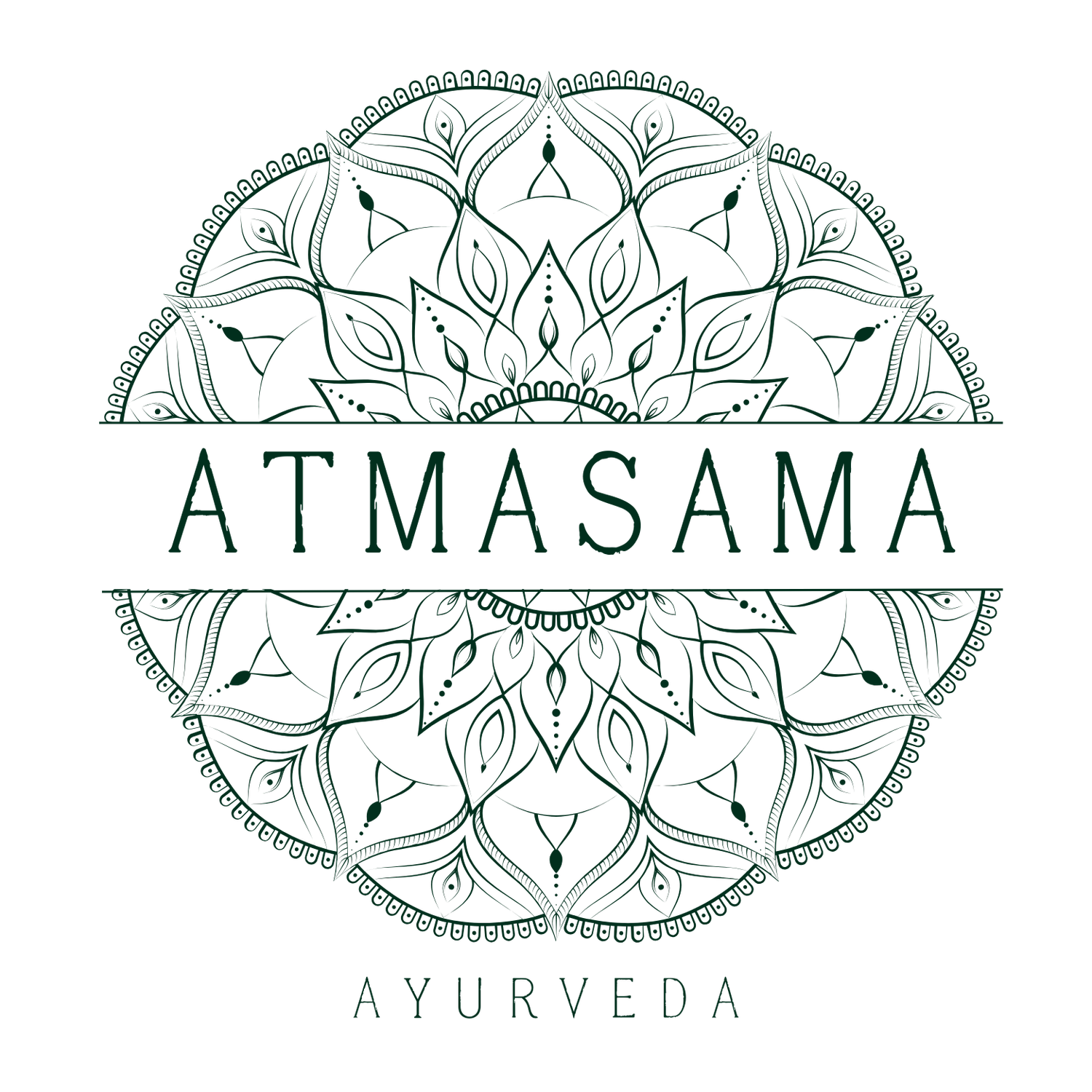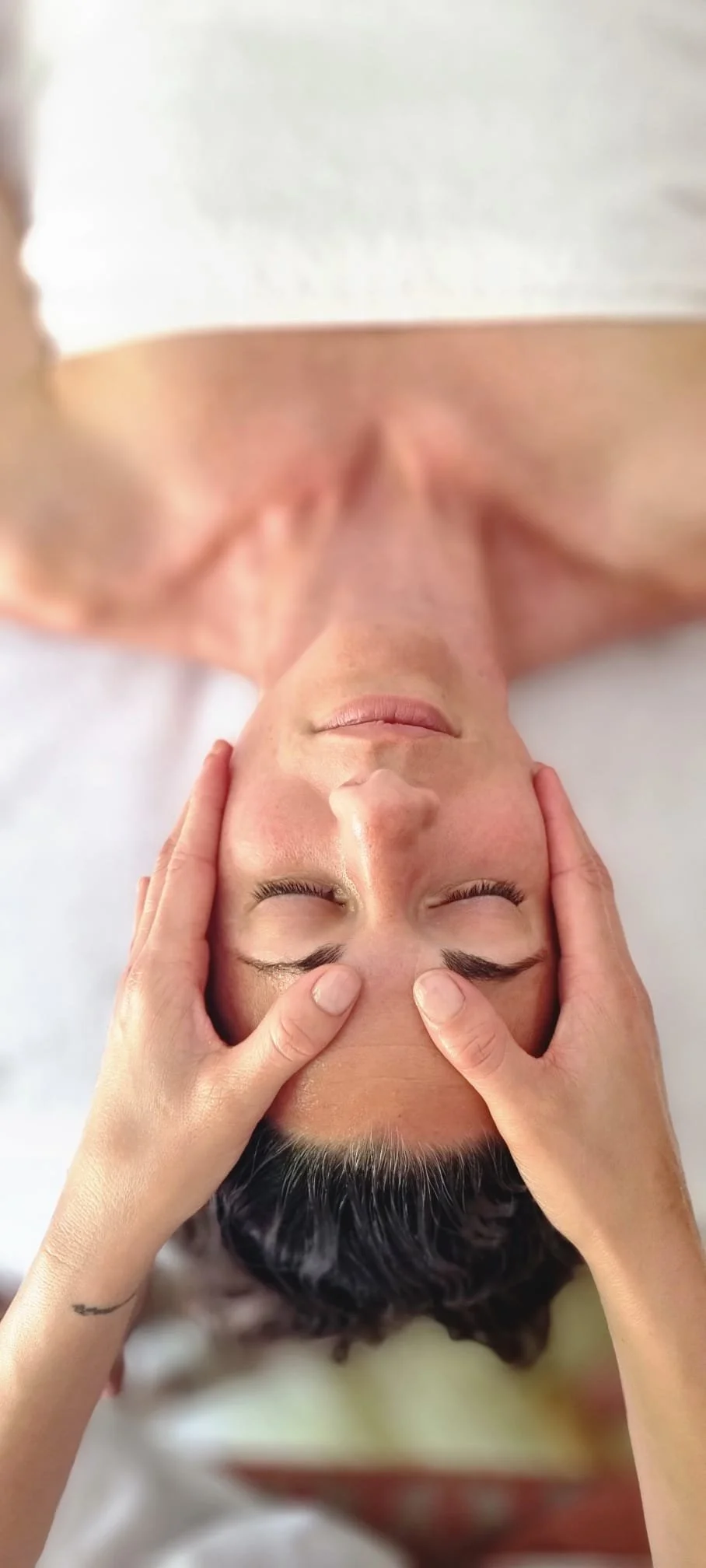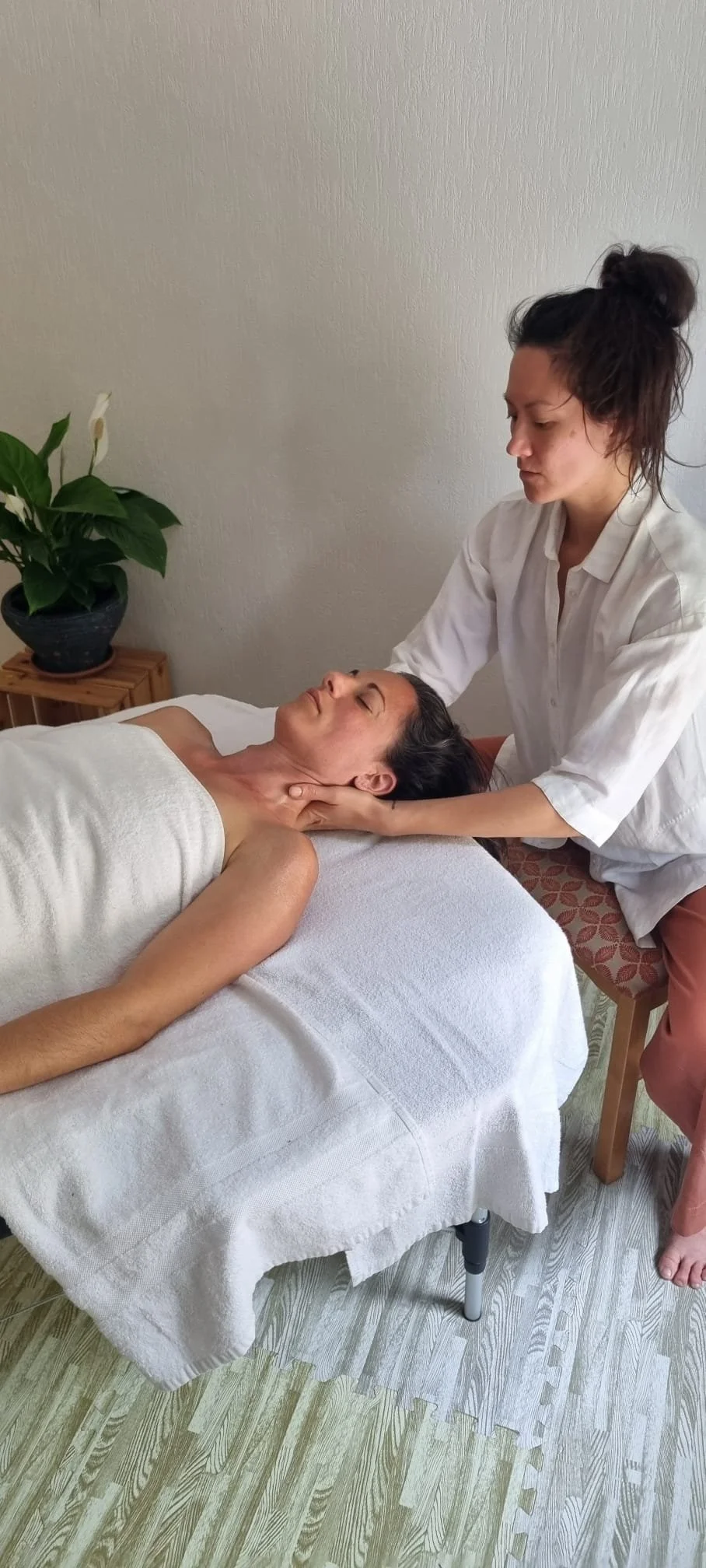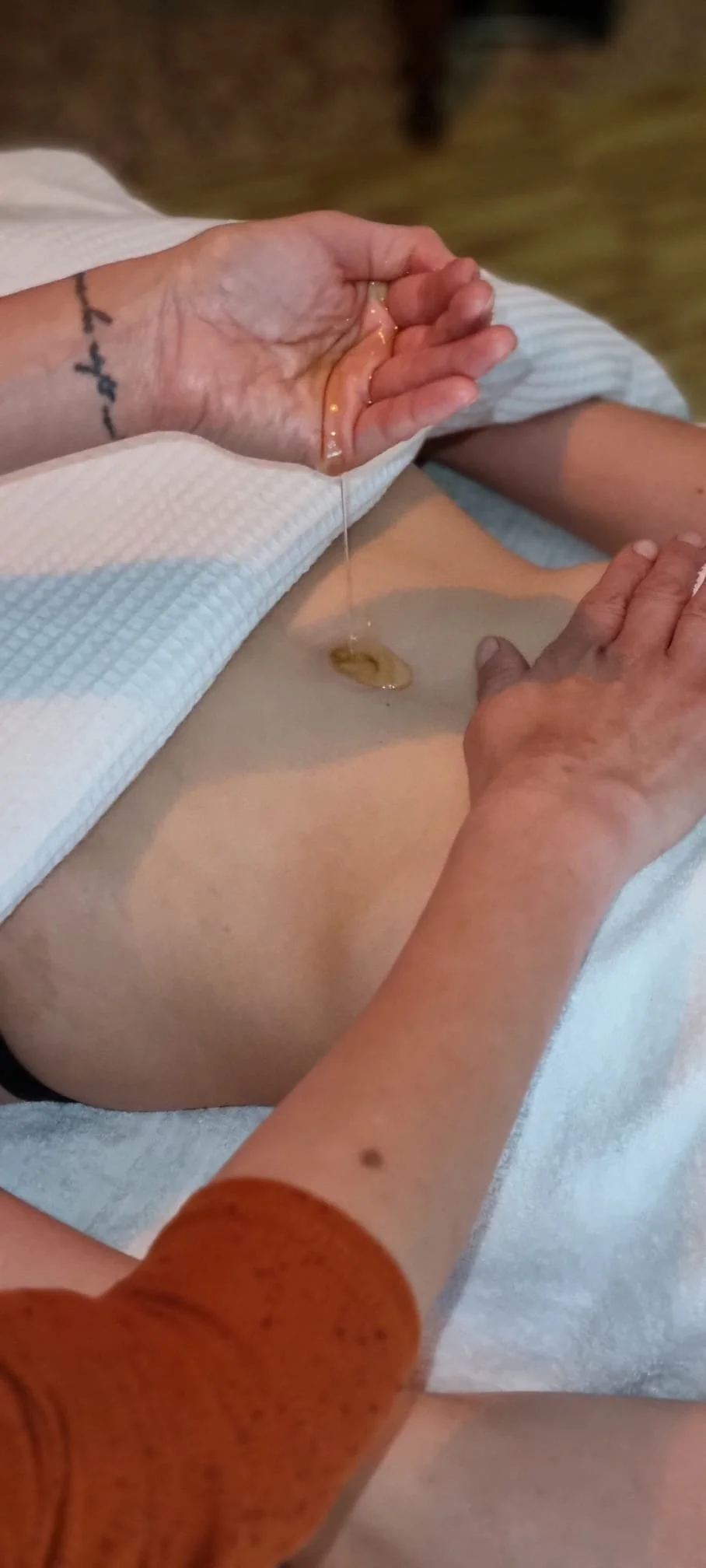Abhyanga Massage
“TOUCH IS MORE THAN PHYSICAL- IT IS MEDICINE FOR THE BODY MIND
AND SOUL”
What is Abhyanga?
The word Abhyanga comes from Sanskrit: abhi meaning “toward” and anga meaning “limb” or “body part.” It refers to the anointing of the body with warm, herbal infused oil in a rhythmic, intentional way. The practice is both grounding and nourishing, offering support for the nervous system, the skin, the circulation, lymphatic system, and the deeper tissues (dhatus).
This is not a deep tissue or muscular therapy in the Western sense. Abhyanga works more subtly, inviting the body to relax, digest, and eliminate toxins (Ama). The movements are generally slow, repetitive, and warm, designed to soothe vata dosha, support the lymphatic system, and restore the natural flow of energy (prana) in the body.
What to Expect
In a session, warm oil is chosen based on your constitution (prakriti) and current state of balance or imbalance (vikriti). The oil is prepared with Ayurvedic herbs that penetrate through the skin and carry their therapeutic qualities to deeper tissues.
You will lie on a massage table, often with minimal covering, though your comfort and privacy are always respected. The massage is done in a continuous flow, with strokes that follow the direction of lymph and energy pathways. Attention is given to joints, marma points (energy points), and vital areas such as the scalp, feet, and abdomen.
Frequently asked Questions
-
While benefits vary depending on the individual, Abhyanga is traditionally understood to:
Nourish the skin and tissues
Support the nervous system and calm the mind
Improve sleep and restfulness
Enhance circulation and lymphatic flow
Ease joint stiffness and muscle tension
Promote digestion and the release of toxins
Ground the body and regulate vata dosha
It is not uncommon for people to feel lighter, clearer, and more connected to themselves after a session — not from stimulation, but from a return to stillness.
-
It can be helpful to avoid eating a heavy meal in the hour or two before your appointment. Come in clean, without oils or lotions on the skin, and wear comfortable clothing you don’t mind getting a little oily afterwards.
-
In Ayurveda, oil is considered a vehicle (anupana) of nourishment and intelligence. It softens the tissues, calms the mind, and helps to draw toxins out through the skin. For vata conditions, which are often linked with dryness, anxiety, insomnia, or scattered energy, oil is considered one of the most direct ways to pacify and restore.
When oil is applied regularly to the skin, it is said to strengthen the immune system, support healthy aging, improve the tone and texture of the skin, and aid in emotional stability.
-
That’s absolutely fine. Each session is tailored to you. We can exclude areas or adjust pressure and pace according to your needs.
-
The herbal oils used are deeply nourishing but can stain fabric. It’s best to wear older, dark clothing after your treatment and to bring something simple to tie up your hair if needed. A shower is not required immediately after the session, and allowing the oil to remain on the skin for a few hours can enhance its effects.
-
Abhyanga is traditionally done with minimal covering to allow full access to the body, though your comfort and modesty are always respected. You will be properly draped throughout the session, and we can adapt the approach based on your preferences.
-
It’s recommended to leave some time after your treatment to rest or take a slow walk in nature. Avoid rushing back into activity if possible. The effects of Abhyanga continue to unfold after the session — as the body integrates, digests, and rebalances.
Drinking warm water or herbal tea, eating a light, nourishing meal, and taking a warm bath later in the day (if oil remains on the skin) can all support the process.
-
Abhyanga is beneficial for most people, though it is especially helpful for those experiencing signs of vata imbalance, such as dryness, restlessness, overthinking, fatigue, or difficulty sleeping. It is also valuable during times of transition, emotional sensitivity, or seasonal change.
There are certain health concerns where is not recommend, such as if you have a fever, or if you're pregnant. If you’re unsure whether this therapy is appropriate for you, I’m happy to discuss it further and tailor the approach to meet your needs.
-
In general, full-body Abhyanga is not recommended during the first trimester of pregnancy or during active menstruation, as the body is already in a process of transformation or release. However, lighter, adapted treatments may be possible — feel free to ask.
-
If you have a fever, active infection, indigestion, skin irritation, or are recovering from an acute illness, it’s best to wait. Abhyanga is most supportive when the body is ready to receive and integrate its effects.
-
Some people benefit from regular treatments — weekly, bi-weekly, or monthly — especially during times of stress, transition, or seasonal change. Others come occasionally, as needed. If you’re unsure, we can speak about what would best support your current state.
-
Abhyanga is a traditional Ayurvedic practice aimed at restoring balance and supporting the body’s natural intelligence. It is not a substitute for medical care or diagnosis. If you are under medical treatment, please inform me so we can adapt the session accordingly.
Contact
Sessions take place in a peaceful space in Apt, in the south of France, or can be offered at select events or locations by arrangement.
If you have questions or would like to book a session,
you’re welcome to get in touch.






